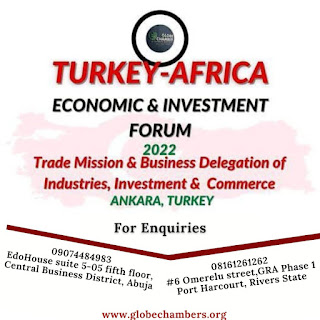The Asia Economic and Investment Forum is a program designed by Globe Chamber of commerce and Industry to create a platform for business minds to explore ways of practical cooperation in trade, investment, finance, human resources, agriculture, and also strengthen industrial capacity cooperation in the manufacturing industries, household appliances, textiles, food processing , among others.
Why having such an event in Asia?
While the economies of most Asian countries can be characterized as developing, there is enormous variation among them. The continent contains one of the world’s most economically developed countries, Japan, and several that are impoverished, such as Afghanistan, Cambodia, and Nepal. This variation has a regional dimension. Most of the countries of Southwest Asia fall within one of the middle-income categories as defined by the World Bank. Exceptions are Israel and the Persian Gulf states of Kuwait, Qatar, and the United Arab Emirates, which are considered high-income. Most of the countries of North and Central Asia fall within the low-income category, except Russia (Siberia), Kazakhstan, and Uzbekistan, all considered lower-middle-income. Likewise, all the countries of South Asia are considered low-income, apart from lower-middle-income Sri Lanka. Except for China and North Korea, which are considered low-income, East Asia is the most prosperous part of the continent. Most countries in this region are considered upper-middle-income, and Japan is considered high-income. China, which has experienced dramatic rates of economic growth since the late 20th century, may be poised to achieve lower-middle-income status. Many of the countries of Southeast Asia have likewise achieved high rates of growth and have moved into one of the middle-income categories or even, in the case of Singapore and Brunei, into the high-income category. Exceptions are Myanmar (Burma), Laos, Cambodia, and Vietnam, which remain within the low-income group.
The explanation for these varying degrees of development is complex and multifaceted. Before World War II, Japan was alone in Asia in having developed a domestically owned, financed, and managed industrial base. Other countries relied on the exchange of basic raw materials and commodities such as rubber, tea, and tin for industrial products, often supplied by Western colonial powers. Since then different countries have adopted different strategies to achieve economic development. From the 1950s through the ’70s, the continent’s two largest countries—India and China—both adopted policies of self-sufficiency and internal development, limiting the role of external trade and investment. During that period, countries also chose between socialism—i.e., relying on state ownership of economic enterprises as a pathway to development—and capitalist development based on private ownership. The contrasting success of these two economic systems can be seen nowhere better than in the Korean peninsula, where capitalist South Korea has achieved a relatively high level of prosperity, while socialist North Korea has experienced repeated famines and economic difficulties. The economic success of capitalist Hong Kong, Taiwan, and Singapore was undoubtedly one of the reasons why China moved during the 1980s and ’90s from state socialism to increasing reliance on private ownership and capitalist economic relations, even though the Chinese Communist Party retained absolute political power.
Industrialization has provided the primary means of economic development. For some economies this has meant manufacturing consumer goods, such as electronics, footwear, or clothing, often as contractors for foreign firms. The countries that have experienced the most dramatic growth, however, such as South Korea, Singapore, and Taiwan, have provided state support for domestically owned firms, invested heavily in education, and moved from low-cost manufacturing to more advanced economic activities generating greater returns. For countries such as Saudi Arabia, other Persian Gulf states, and Brunei, growth has come from exploiting valuable petroleum and natural gas reserves—but in general these countries have found it hard to develop economic sectors independent of oil production for future sustainable growth.
Despite these changes, a majority of people in Asia are still engaged in agriculture, usually working small peasant holdings. In China and India, agriculture is still by far the biggest employer, though it provides a diminishing share of gross domestic product. The greatest poverty in these countries is thus usually found in rural areas. But the acceleration of urbanization since the mid-20th century has meant that increasing numbers of rural peasants are leaving the land for the cities.
The population shift from rural areas to the cities in Asia is an unprecedented migration. In China, systems of residential permits aim to control the flow, but many peasants move to Chinese cities even without official permits. In Indonesia, by contrast, there is effectively no control, although there are policies to try to diffuse the location of new industrial employment. As industry has become increasingly mechanized, it has often not provided much proportional growth in employment. It is the service sectors of the expanding cities that have shown the fastest growth in employment in recent years. In the poorer countries much of the employment growth is in what is known as the informal sector—a term referring to small, often family-owned businesses operating outside state regulation or control and mainly engaged in petty services or petty manufacturing.
To date, increases in food production have allowed most countries to feed their growing populations, but the balance between population growth and food supply has been delicate. The dominant methods by which the major grain crops are produced remain labour-intensive. Crop yields vary greatly throughout Asia. For example, rice production per acre in Bangladesh is about half that of South Korea. Only about one-fifth of Asia’s land is arable, and it has been increasingly difficult to expand production by extending the amount of cultivated land, although in some areas, such as western Indonesia, forest has continued to be cleared for colonization. In most tropical and subtropical parts of Asia, cropping intensity has risen—i.e., arable land increasingly has been cultivated for more than one crop (and in some areas, such as Bangladesh, sometimes even three crops) each year. Major efforts to increase production have occurred through the so-called Green Revolution, which involved introducing hybrid seed strains that have been responsive to chemical fertilizers. This technology has required controlled water supplies and has led to increases in irrigation and the use of pesticides. Mechanization has been important for some crops, such as wheat and corn (maize), but in general it has not been so important for rice growing. It is thought that a more significant barrier to further agricultural development has been the uneven distribution of land. This problem has been particularly acute in the poorer countries of Asia. While governments have made concerted efforts to produce workable land-reform programs, progress has been slow; this has been particularly conspicuous in the Indian subcontinent and the Philippines. In the socialist countries, land reform was attempted through collectivization, but in general land has been given back to peasants to farm individually. Anxiety that the growth potential of the Green Revolution has been slackening has contributed to arguments for introducing genetically modified organisms. Asian countries, however, have responded cautiously to such proposals.
Asian economic interdependence grew significantly during the late 20th century as a product of trade, investment, and better access to information. Japanese investment has dominated much of East and Southeast Asia. Formal organization of the regional economy remains relatively weak, although the Association of Southeast Asian Nations (ASEAN) has worked reasonably well. For most of these countries, however, trade with other Southeast Asian countries has grown less quickly than trade with Japan. In 1995 the South Asian Association for Regional Co-operation proclaimed a South Asian Free Trade Area as one of its policy goals, but such a zone has not yet been realized. The Persian Gulf countries have sometimes achieved sufficient unity to act together through the Organization of Petroleum Exporting Countries (OPEC; which includes non-Asian members) to control oil prices, but otherwise there has been little regional integration in Southwest Asia. Siberia, the Asian portion of Russia, suffered after the collapse of Soviet central planning in the early 1990s, and the Russian central government subsequently abandoned the region to manage on its own. The remote location and fierce climate have discouraged private investors from trying to exploit much of Siberia’s vast mineral and timber resources, except for the heavily developed petroleum and gas deposits of western Siberia.
The aforementioned subject is brought to you, courtesy of National Mail.
National Mail is an online news platform of Globe Chamber of Commerce and Trade Nigeria that focuses on business development, Investment, trade, economic exchange and development.
Follow National Mail on twitter, LinkedIn, and Nairaland for your one stop news update!























